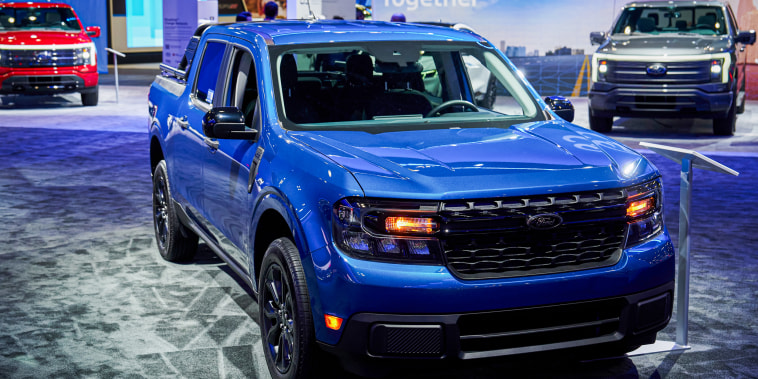In a strategic move to align with evolving consumer preferences and market demands, Ford recently announced a delay in the launch of its all-electric SUV. Instead, the automotive giant plans to shift its focus towards offering hybrid vehicles across its lineup by the year 2030.
This decision comes at a critical juncture when the automotive industry is undergoing a significant transformation, primarily driven by the global transition towards sustainable mobility solutions. With stricter emissions regulations and a growing environmental consciousness among consumers, automakers are compelled to reevaluate their product strategies to stay competitive and relevant in the market.
Ford’s decision to prioritize hybrid vehicles over all-electric models reflects a nuanced understanding of the current landscape. While electric vehicles (EVs) are gaining traction, there are still challenges such as range anxiety, charging infrastructure, and affordability that need to be addressed to accelerate their mass adoption. Hybrid vehicles, on the other hand, offer a middle-ground solution by combining the benefits of internal combustion engines with electric powertrains, providing a smoother transition towards electrification for consumers.
By focusing on hybrid offerings across its lineup, Ford aims to cater to a broader range of customers with varying needs and preferences. This approach not only diversifies its product portfolio but also provides consumers with more options to choose from based on their driving habits, budget, and infrastructure availability. Moreover, hybrid vehicles can serve as a stepping stone for customers who are not yet ready to fully transition to electric vehicles, thus expanding Ford’s market reach and appeal.
Furthermore, the decision to delay the launch of the all-electric SUV demonstrates Ford’s commitment to thorough planning and thoughtful execution of its electrification strategy. By taking the time to refine its hybrid technologies and offerings, Ford can ensure that its products meet the performance, reliability, and cost expectations of its customers. This strategic delay also allows Ford to allocate resources effectively, streamline production processes, and navigate the evolving regulatory landscape with agility.
Looking ahead, Ford’s emphasis on hybrid vehicles sets the stage for a gradual but steady transition towards a more sustainable future. By leveraging its expertise in both internal combustion engines and electrified powertrains, Ford can position itself as a leading provider of hybrid vehicles in the market, catering to the diverse needs of consumers while advancing its sustainability goals. Through strategic planning, innovation, and customer-centric approach, Ford is poised to navigate the shifting automotive landscape successfully and drive towards a greener tomorrow.
